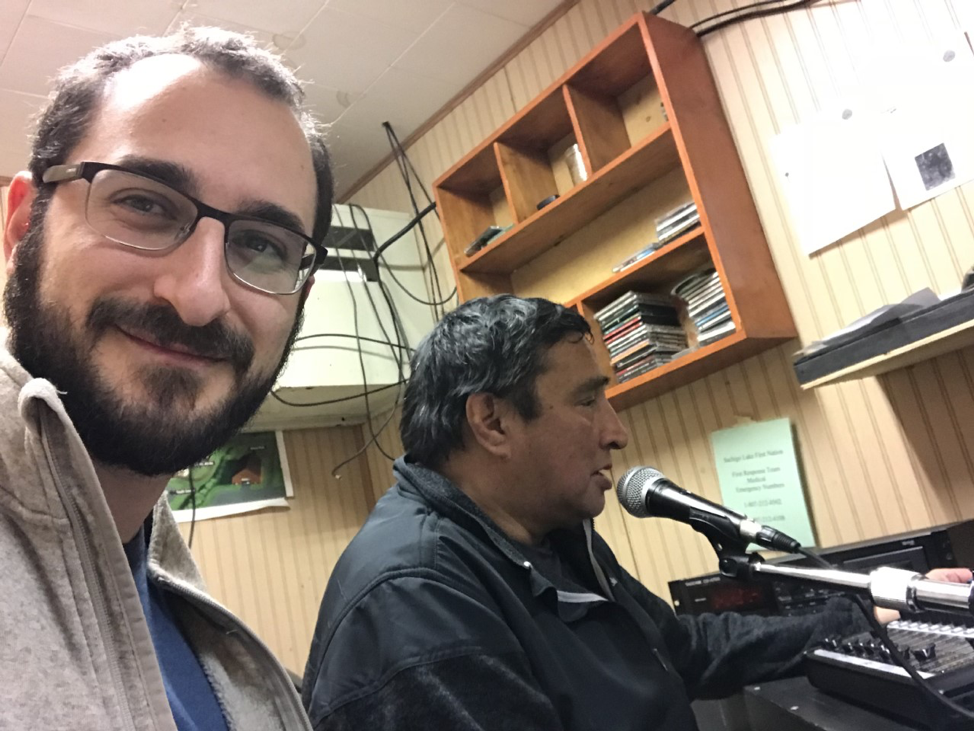Benjamin Langer, MA, CCFP studied History of Science and Technology at King’s and Biology at Dalhousie, graduating in 2009. He went on to do a masters degree in Desert Studies at Ben Gurion University of the Negev and the Arava Institute for Environmental Studies, where his work looked at pandemic preparedness in Israel and Palestine in historical perspective. He completed medical school at Western University in London, ON, and Family Medicine Residency at the University of Toronto. He currently practises comprehensive family medicine in Sioux Lookout, ON, including emergency medicine, inpatient medicine, and obstetrics. He travels monthly to Sachigo Lake First Nation, where he is the community family doctor.

This is a picture of me at the Sachigo Lake First Nation radio station giving a health promotion talk about Hepatitis C.
I decided on the study of HOST at King’s because I had long loved stories of scientific discovery, mostly neatly packaged heroic narratives of geniuses who fought persecution and ridicule to bring us closer to a true understanding of our world. What I found in HOST was much deeper, stranger, and more thrilling: a powerful set of tools for examining the messy way that our modern notion of truth is established, inextricably entangled with other social, political, and economic institutions. Connecting the dots between the study of HOST and a career in medicine might at first seem a stretch. But medicine, and family medicine especially, is at its heart an historical art.
Ask any physician what is the cornerstone of medical practice, and they will most likely respond, “taking an excellent history”, meaning gleaning from a patient the story of their illness experience. And while we have broad laboratory testing and powerful imaging technology at our disposal, our most powerful tools are our questions, and our ability to listen to stories and frame narratives. Zooming out from the individual patient encounter, the art of medicine, at its best, is also concerned with why this patient contracted this illness at this time. Practising as I do in rural and remote Northwestern Ontario, largely serving Anishinaabe patients both in Sioux Lookout and in remote reserves, the answer to this question tends to be multifaceted: exposure to antibiotic-resistant infection, stress-weakened immune systems, and poor nutrition. Why? Overcrowding, exposure to emotional trauma, and poverty. Why? Well, you can’t go too far without beginning to talk about colonialism, cultural genocide, and the role of science and medicine in these processes.
My turn towards medicine was through encounters with a handful of incredible people whose careers brought together both the “bearing witness” of medical practice and the analytical, contextualizing eye of history and anthropology I loved from HOST. This journey has led me to work with indigenous people in Northern Ontario, asylum seekers in Tel Aviv and Toronto, and favela residents in Rio de Janeiro. Having learned to see through the HOST lens, it has enriched my medical training and practice and encouraged me to be sceptical of neatly packaged stories wherever I find them.

